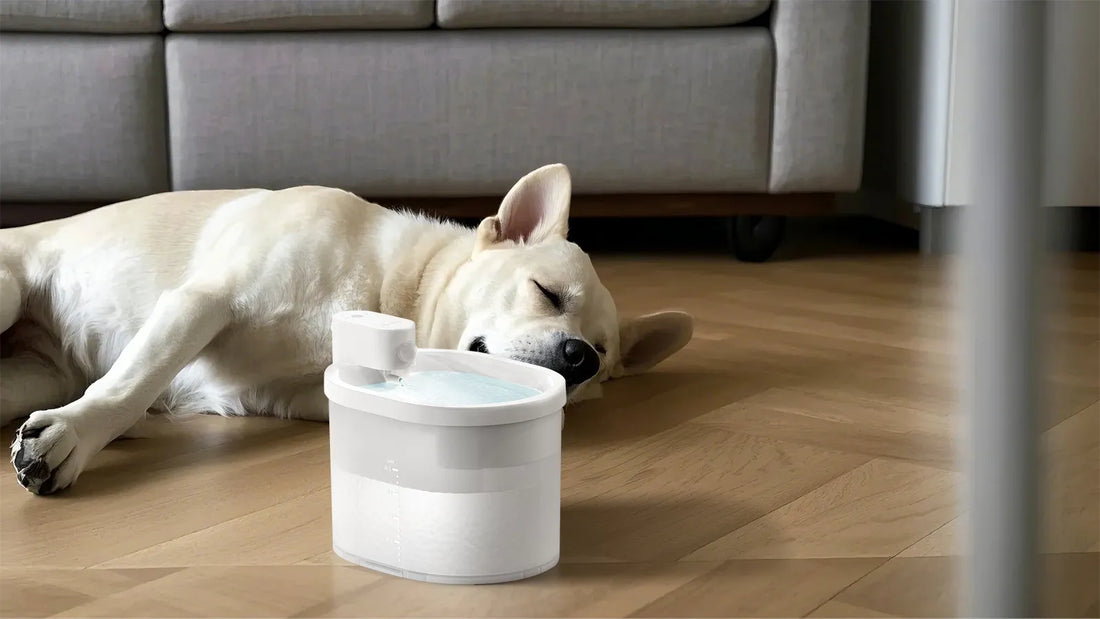If your dog is drinking excessive amounts of water, vomiting it back up, and refusing to eat, it’s natural to feel concerned. These symptoms can indicate a range of underlying issues, from minor digestive upset to serious health conditions. Understanding the potential causes and knowing when to seek professional help is crucial for your pet’s well-being.
Possible Causes of Excessive Water Drinking and Vomiting
There are several reasons why your dog might be exhibiting these symptoms. Here are some of the most common causes:
Dehydration
While it may seem counterintuitive, dehydration can lead to excessive water drinking. If your dog is dehydrated, they may gulp down water quickly, only to vomit it back up. Dehydration can result from hot weather, illness, or insufficient water intake.
Kidney Disease
Kidney disease is a common condition in older dogs that can cause increased thirst and vomiting. The kidneys play a vital role in filtering waste from the blood, and when they are not functioning properly, toxins can build up, leading to nausea and loss of appetite.
Diabetes
Diabetes can cause excessive thirst and urination in dogs. If your dog’s body is not producing enough insulin or is unable to use it effectively, their blood sugar levels can rise, leading to increased water consumption and vomiting.
Gastrointestinal Issues
Problems in the gastrointestinal tract, such as gastritis or pancreatitis, can cause vomiting and a reluctance to eat. These conditions can be triggered by dietary indiscretion, infections, or underlying health issues.
Infections or Parasites
Infections, such as parvovirus or leptospirosis, can lead to vomiting and dehydration. Parasites like worms can also cause gastrointestinal distress, leading to similar symptoms.
When to Seek Veterinary Care
If your dog’s symptoms persist for more than 24 hours, it’s essential to consult a veterinarian. Additionally, seek immediate care if your dog shows signs of severe dehydration, such as lethargy, dry gums, or sunken eyes. Other red flags include blood in the vomit, abdominal pain, or a sudden change in behavior.
How to Support Your Dog at Home
While veterinary care is often necessary, there are steps you can take at home to support your dog’s recovery:
Monitor Water Intake
Keep track of how much water your dog is drinking. Offer small amounts of water at regular intervals to prevent them from gulping it down too quickly, which can lead to vomiting.
Encourage Eating
If your dog is refusing food, try offering bland, easily digestible options such as boiled chicken and rice. Avoid giving them rich or fatty foods, as these can worsen gastrointestinal issues.
Provide a Comfortable Environment
Ensure your dog has a quiet, comfortable place to rest. Stress can exacerbate symptoms, so minimizing disruptions can help them recover more quickly.
Preventing Future Episodes
To reduce the likelihood of your dog experiencing these symptoms again, consider the following preventive measures:
Maintain a Balanced Diet
Feed your dog a high-quality, balanced diet that meets their nutritional needs. Avoid sudden changes in their diet, as this can upset their stomach.
Ensure Regular Veterinary Checkups
Routine checkups can help detect potential health issues early, before they become serious. Your veterinarian can also provide guidance on maintaining your dog’s overall health.
Keep Your Dog Hydrated
Make sure your dog always has access to fresh, clean water. During hot weather or after exercise, monitor their water intake to prevent dehydration.
If your dog continues to drink excessive water, vomit, and refuse food, don’t delay in seeking professional help. Early intervention can make a significant difference in their recovery and long-term health. Your furry friend relies on you to ensure they receive the care they need, so stay vigilant and proactive in addressing their symptoms.













